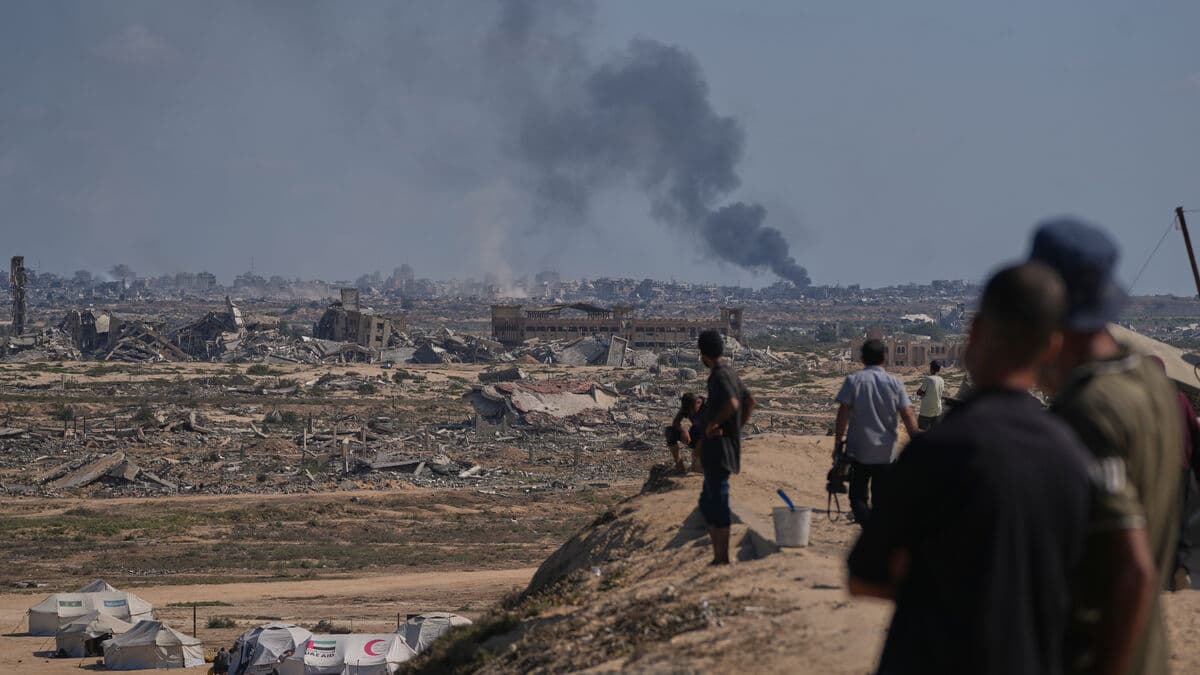Hospitals confirm to the news agency AFP that they have received the bodies of 10 killed people in Gaza City, 14 from the central parts of the strip and 28 from the southern parts.
They are reported to have been killed in both air attacks, drone attacks and by fire from Israeli soldiers.
Nasser Hospital states that 14 of the 30 bodies they received on Thursday belong to people who were shot dead while waiting for emergency aid.
MSF: Unacceptable
Among the dead registered at the hospital in Deir el-Balah is a member of Médecins Sans Frontières (MSF) staff, 26-year-old Omar al-Hayek. He was killed in an attack on a group of civilians in the central parts of the city, according to the hospital and his relatives.
We heard that some of our staff were injured, says Karin Huster, head of MSF's medical team in Gaza, to AFP.
When we arrived (at the hospital) we discovered that one of our colleagues had been killed and that four others were injured. Tragic news for both the families and our team. This killing, targeted attacks or not, must stop, this is unacceptable.
Left the largest city
MSF announced on Friday that the organization is being forced to leave Gaza City due to Israel's expanded military offensive in northern Gaza.
"We have no other choice but to stop our operations since our clinics are being surrounded by Israeli forces", said MSF's coordinator in Gaza Jacob Granger at the time in a press release.
The terrorist-stamped Hamas attack on Israel on October 7, 2023, marked the starting point for the war in Gaza. Since then, over 66,200 Palestinians, most of them civilians, have been killed in Israel's constant bombardment of the strip, according to authorities in Gaza.
Life-changing injuries
In addition to the killed, a total of nearly 170,000 Palestinians are reported to have been injured.
About 42,000 of them – a quarter of whom are children – have suffered "life-changing" injuries that are expected to result in permanent serious damage, according to a new analysis from the World Health Organization (WHO).
These include, for example, amputations, head and spinal cord injuries as well as severe burns.
The situation is extremely difficult for the injured, notes WHO chief Tedros Adhanom Ghebreyesus.
The explosions that cause these injuries also destroy the healthcare facilities necessary to treat them, he says at a press conference on Thursday.






